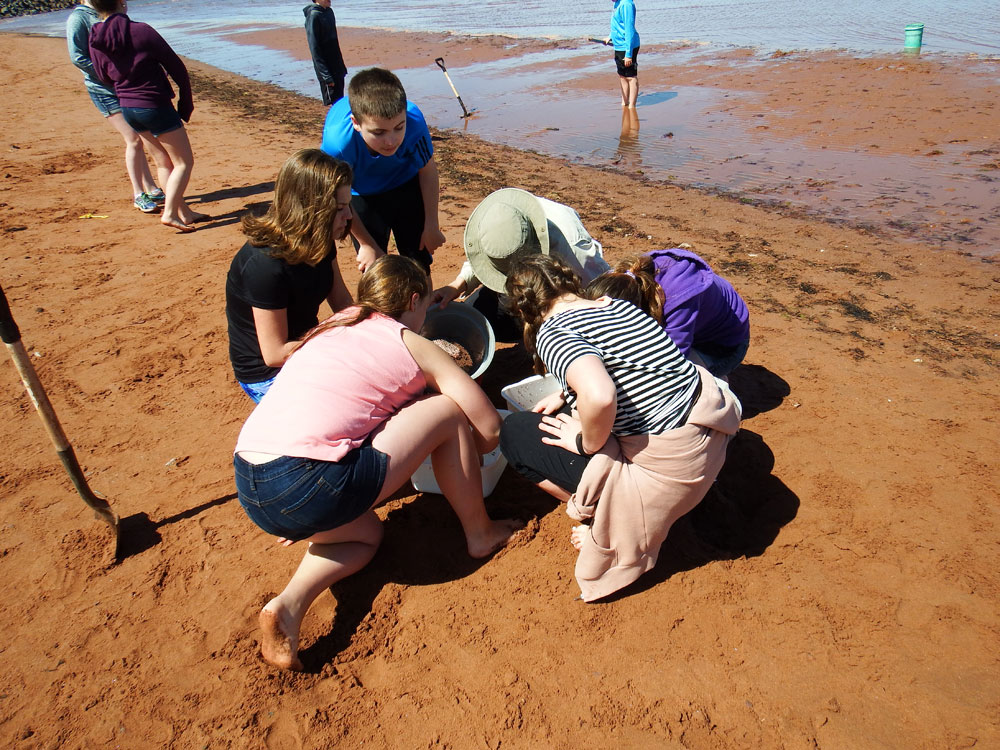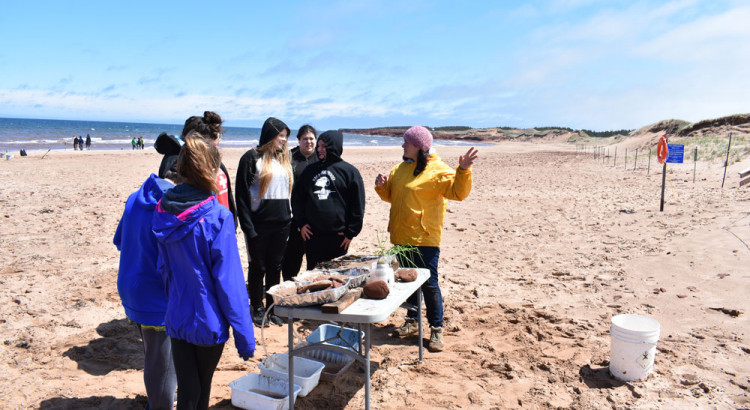Limited offering to grade 7 classes, subject to availability of funding
PEI is well known for its beautiful beaches, which attract hundreds of thousands of visitors every year. Our coast is a dramatic combination of soaring red cliffs and sandy beaches backed by extensive dune systems. The sandy beaches, dunes, and barrier islands that lie along the shore offer natural beauty, but also services – they buffer coastal communities from storms, help with flood control, improve water quality and provide habitat for commercially important fish and shellfish species as well as other wildlife. These areas are integral to the culture and resilience of the rural communities of PEI.
Beaches are also an important place for recreation for those who have grown up on PEI, and as such most people feel deeply connected to the shore from a young age. We believe it is important to foster that connection and expand upon the way that people view the beach. This is not only a place to recreate, but also a dynamic, diverse ecosystem that we share with other species and that needs our protection.
Coastal development and vehicle and foot traffic on sensitive dunes can change the physical structure of these systems and compromise their ecological function. The wildlife that breed and feed at the shore are also threatened by predators attracted by litter, loose pets, and a variety of recreational activities that take place at the shore.

To promote sustainable use of these important places, Island Nature Trust has partnered with local watershed groups and intermediate schools in western and central PEI. The grade 7 science curriculum, with its focus on ecosystems and forces of weathering, is perfectly suited to learning about a fragile habitat that lies in these student’s communities. Youth at this age are also able to understand the depth of connectedness between human actions and the health of their local environment.
During this program, students participate in two interactive in-class sessions that encourage decision making and critical thinking about beach-dune ecosystems, and engage students in finding creative solutions to local challenges. A field trip to a nearby beach provides hands-on experiential exercises using science-based methodology, including a close-up look at intertidal invertebrates, the life in the wrack line and bird identification in the back dune.
For more information on this educational offering, please contact us!

